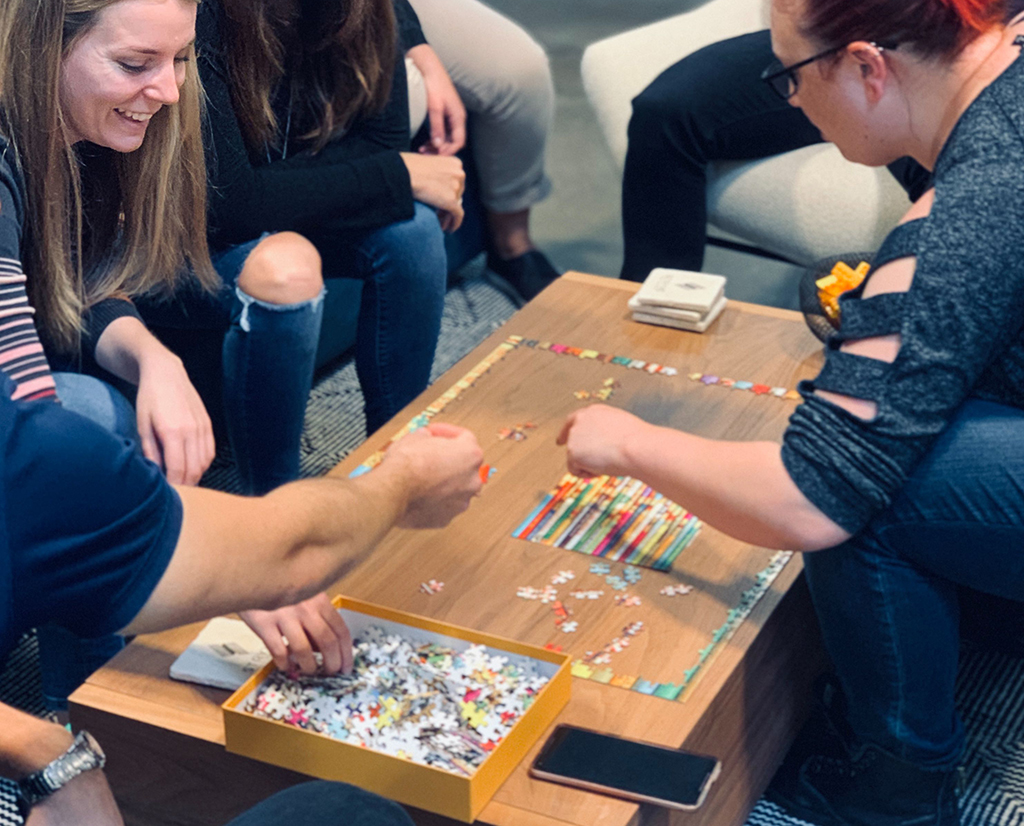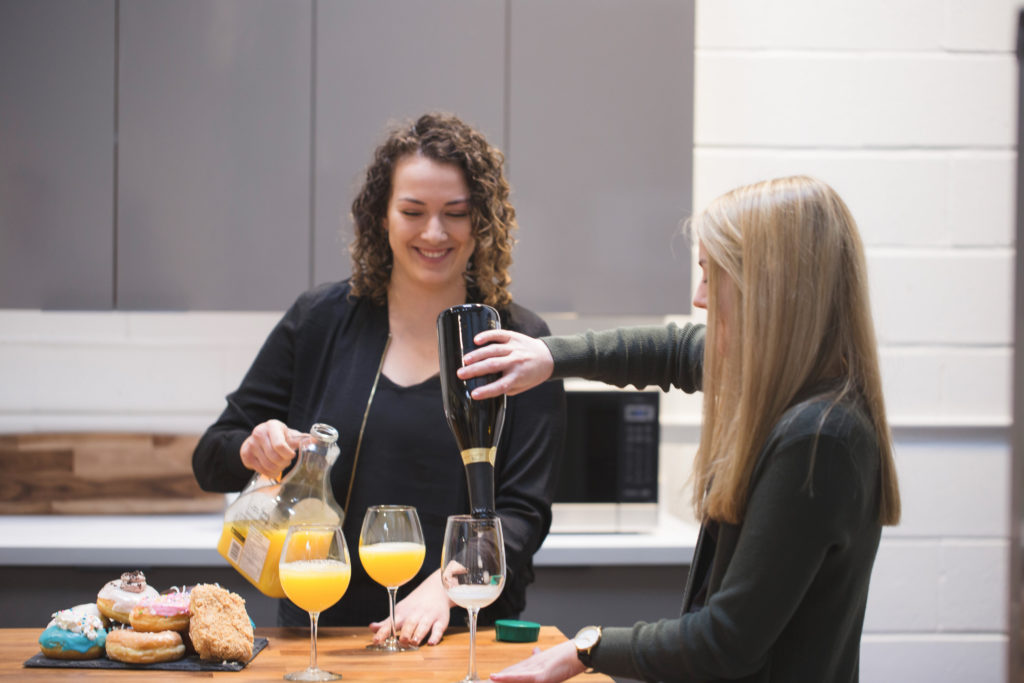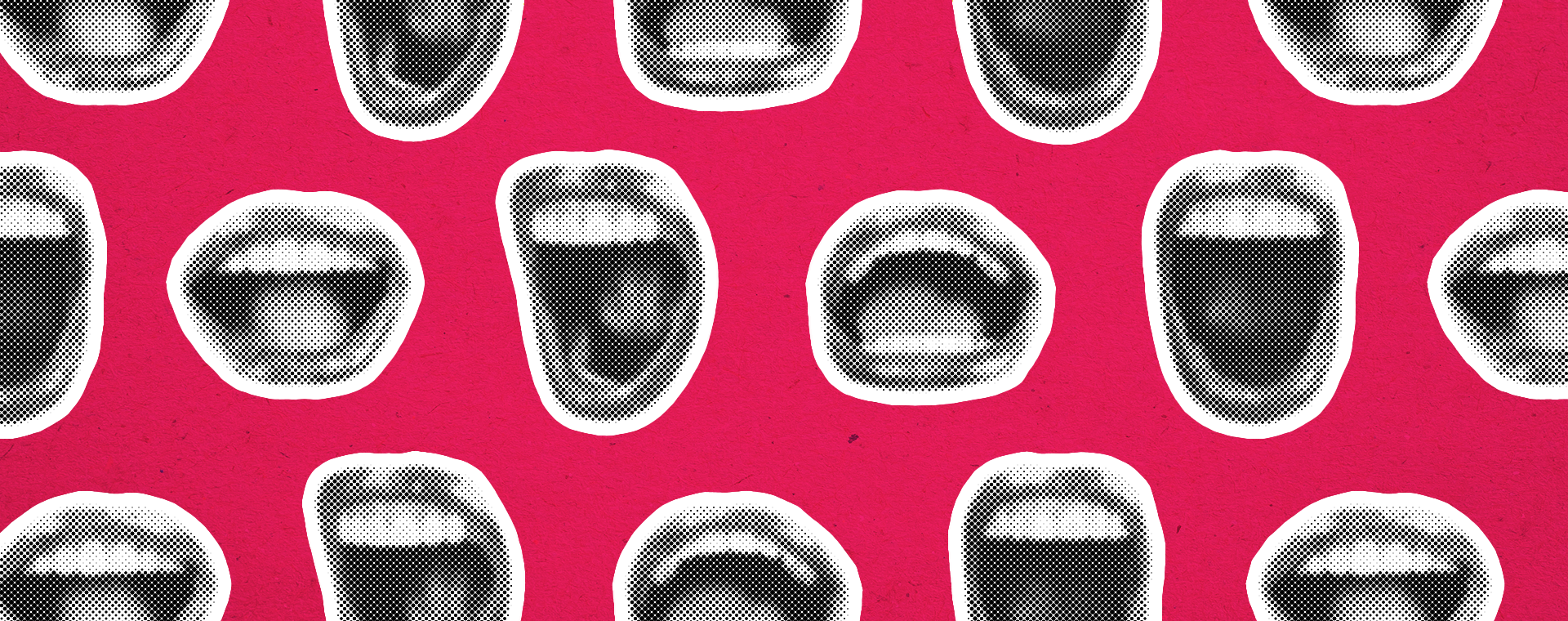Why our Friday social is an essential part of our culture
By: Kaleigh Bulford
January 22, 2020 | Reading Time: 6 mins
I recently had an interesting conversation with a colleague at Catalyst. He told me that after hearing about Stryve’s Friday social, ‘Feel Good Fridays’, he suggested that they implement something similar at his company. The idea never got any traction, and now every Friday I see him walk by, look into our windows longingly, with a single tear in his eye.
Ok, not quite, but the fact is many companies don’t believe in dedicating any work hours to team socializing, viewing it as an unproductive (or even counterproductive) use of time. But at Stryve, our people are our product, so ensuring they’re happy and have strong interpersonal relationships is extremely important. So how do we do it?
[/intro]
What is Feel Good Friday?
Every Friday at 3:30 PM, we all shut down our laptops, grab a glass of wine, cider, or whatever tickles our fancy, and hang out on our comfy couches as a team. When the weather is nice, we might hit the patio at Arabella or load up on Four All ice cream. With winter now in full force, we’ve been keeping it casual with puzzles, games, and rundowns of weekend plans.
While our office fridge is always well-stocked, the common denominator here isn’t food or alcohol. Feel Good Friday is about bringing everyone together and away from their desks. Still working at 3:45? Whether you’re the boss or the newest employee, prepare to be shamed.

Feel Good Friday is an important part of our culture and is marked off in our calendars as a mandatory meeting. Sure, there might be an occasion where someone needs to attend to client work, but if it becomes a trend, it’s treated as a capacity issue. We’re serious about our forced team bonding.
Here are some other rules that make Feel Good Friday work:
What Feel Good Isn’t
It’s not another after-hours obligation
I hate the ‘we work hard and play hard’ line used by so many companies as though it’s something to be proud of. We all know what that really means — you spend the day working your ass off to then be dragged to the bar to drink your face off. That’s not Feel Good Friday, that’s a twelve-hour workday. Feel Good isn’t another work obligation that eats into your time. That’s right micromanagers, it takes place during regular working hours.
As the most introverted person in the office (at least according to the Myers-Briggs test we all took for fun) there’s only so many after-hours events I can attend before I start feeling drained. I need time to recharge, and those video games aren’t going to beat themselves. Work/life balance means everyone is encouraged to have lives outside of work, whether that’s video games, the gym, competitive line-dancing, or anything else. We don’t judge. This extends to pushing everyone to use all their vacation, not glorifying overtime, and again, limiting mandatory after-hours events. The result? Employees come to work each day refreshed and ready to kick ass.
It’s not optional
If I could pick between socializing at work and leaving early to chill with my cats, I’d probably choose the latter. I don’t think I’m alone on that, either. We’re smart here at Stryve, which is why we made Feel Good mandatory — it would fail otherwise. People would start feeling like the day was done at 3:30 and get into the habit of rushing home to their sweatpants. The dwindling number of participants would negate the positive team-building effects we set out to attain.
While we have the green light to leave on the dot at 4:30 pm, we often stick around and dip into our time, because frankly, we genuinely enjoy each others’ company. Maybe this is the product of Feel Good at play?
It’s not some elaborate event
It’s simple — drinks, chatting, hanging out at the office. No bowling nights or cringey corporate team-building events that are probably a waste of money. No facilitated games designed to make introverts incredibly uncomfortable. There’s no planning involved and costs are minimal, making it easy to keep up week after week. All you have to do is step away from your desk.

It’s not a ‘waste of time’
When I described Feel Good Fridays to my Dad, a business owner himself, he rolled his eyes and told me it sounded like a big waste of time. He’s not alone on that, either. I’ve had many bosses with the ‘if your butt isn’t in your chair you’re wasting time’ mentality, who would have preferred if employees didn’t socialize at all. This is an overly simplistic and archaic way of looking at productivity. It’s 2020 and we’re smarter than this.
Why a regular team social is actually a productive use of time
First of all, we need to dispel the myth that because you’re at work for 8 hours a day, you’re producing 8 hours of work. That’s just not true for most people. Studies show that the average person is only productive for around 3 hours per day. In addition to this, many, many, many studies have shown that shorter workdays or workweeks actually resulted in increased productivity (and happiness!), with some countries even considering moving to a shorter workweek nationally. So don’t worry too much about that hour or two you’d ‘lose’ to a team social, you’ll gain so much more.
Promotes social bonding and helps create best friends
A team social provides the perfect opportunity for team members to form closer relationships. It can speed up the process from ‘what’s her name again?’ to ‘we went shopping together for succulents after work last night’ and you better believe that pays dividends when it comes to collaboration and office culture.
In fact, this study from Gallup reported that employees with a best friend at work were significantly happier. In a study by the University of Pennsylvania and Minnesota, researchers found that friends outperformed acquaintances on tasks due to better communication, more positive encouragement, and an increased willingness to provide constructive criticism and feedback.
And wouldn’t you rather stay late to help out your work bestie with that last-minute report than that Steven guy over in accounting who always eats lunch alone at his desk?

Improves creative problem solving, communication, and collaboration
Speaking anecdotally, we consistently find that getting in a room and casually talking through problems is a great way to solve them. We are able to leverage our team’s diverse experiences and skillsets. Some of our best brainstorming sessions have started from casual conversations unrelated to work or marketing altogether.
Helps retain employees
Ever stayed at a job longer than you should have because you loved the people you worked with? You’re not alone. In one survey, over half of employees (54%) stayed at a job longer than was in their best interest due to a strong sense of belonging and community. With job-hopping at an all-time high, encouraging employees to form friendships can be the best way to keep them around longer.
Now obviously, our exact situation won’t work for every company, but I would encourage companies to get behind the idea. Find opportunities for your team to socialize together and form friendships. It’s worked out pretty well for us. And hey, if you happen to be walking by our office on a Friday at 3:30, feel free to stop by and hang out. Our doors are always open!








